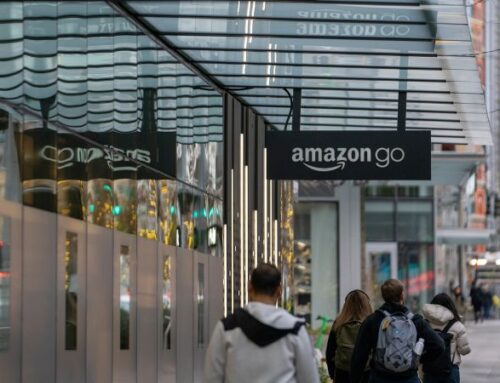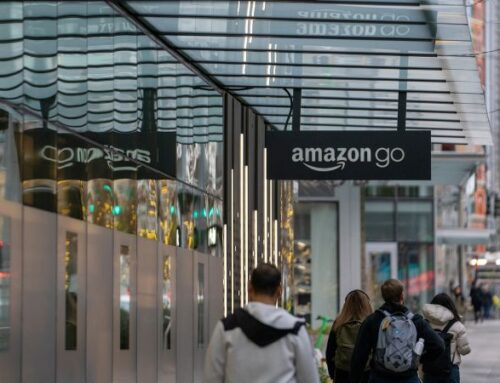Trump says he’ll speak with any CEO who plans to raise prices due to tariffs
May 5, 2025
President Donald Trump on Friday reflected on his phone call earlier in the week with Amazon founder and Executive Chairman Jeff Bezos, telling NBC News’ “Meet the Press” in an interview that he’d use the same tactic with other CEOs if necessary.
The call occurred after Punchbowl News reported that the Amazon was going to begin to list tariff charges on certain Amazon purchases in the wake of the Trump administration’s decision to impose 145% tariffs on China.
“He’s just a very nice guy,” Trump said of Bezos in an interview that aired Sunday. “We have a relationship. I asked him about [the tariff charge language Amazon considered including in listings]. He said, ‘Well, I don’t want to do that,’ and he took it off immediately.”
Trump and Bezos appear to have developed a closer relationship in the last few months than they had during Trump’s first administration.
In December, Amazon donated $1 million to Trump’s inauguration fund, and Bezos attended his swearing-in ceremony. Bezos stepped down as the company’s CEO in 2021, but he is still its executive chairman.
Indeed, in a statement shortly after the Punchbowl report, an Amazon spokesperson told NBC News, “The team that runs our ultra low cost Amazon Haul store considered the idea of listing import charges on certain products. This was never approved and is not going to happen.”
Asked whether he would use the same tactic with CEOs of other major retailers, Trump told moderator Kristen Welker: “Sure. I’ll always call people if I disagree with them.”
“If I think that somebody’s doing something that’s incorrect, wrong or maybe hurtful to the country, I’ll call,” he added. “Wouldn’t you want me to call? [Former President Joe] Biden wouldn’t call because he didn’t know what was happening, but I do.”
In the interview, Trump defended his decision to impose major tariffs on imports from China, saying the move is supposed to give companies incentives to build factories in the United States to avoid paying tariffs, not simply raise prices on consumers to offset the cost of tariffs.
“I don’t view it as a tax. I view it as an incentive for people to come into the United States and build plants, factories, offices, a lot of things. I think it’s an incentive,” he told Welker.
“What people don’t understand is, and this is a lot, the country eats the tariff. The company eats the tariff. And it’s not passed along at all,” he added.
Several other major online retailers, like Temu, a low-cost retail site based in China, have already begun charging consumers tariff fees, adding a line item on purchases that’s listed as “import charges.”
Other popular American retailers, like Béis, Bare Necessities and Fashion Nova, have urged consumers to shop more in the near term, predicting that imposing future tariffs could force them to raise prices.
Larger companies, like PepsiCo and Procter & Gamble, have issued similar warnings, telling shareholders in recent meetings that they’re already seeing the impacts of tariffs on earnings.
Trump has acknowledged that tariffs could have an impact on the availability of consumer goods in the near term.
Asked whether his remark about children having fewer toys during a Cabinet meeting was an acknowledgment that tariffs would cause prices to rise, Trump told Welker: “I don’t think that a beautiful baby girl needs — that’s 11 years old — needs to have 30 dolls. I think they can have three dolls or four dolls, because what we were doing with China was just unbelievable.”
Trump made a similar remark at a Cabinet meeting at the White House, telling members of his administration: “Maybe the children will have two dolls instead of 30 dolls. And maybe the two dolls will cost a couple of bucks more than they would normally.”
But he pushed back against the assertion that he was predicting price hikes or supply shortages due to tariffs.
“I’m just saying they don’t need to have 30 dolls. They can have three. They don’t need to have 250 pencils. They can have five,” he said, adding, “we don’t have to waste money on a trade deficit with China for things we don’t need, for junk that we don’t need.”
Search
RECENT PRESS RELEASES
Related Post




